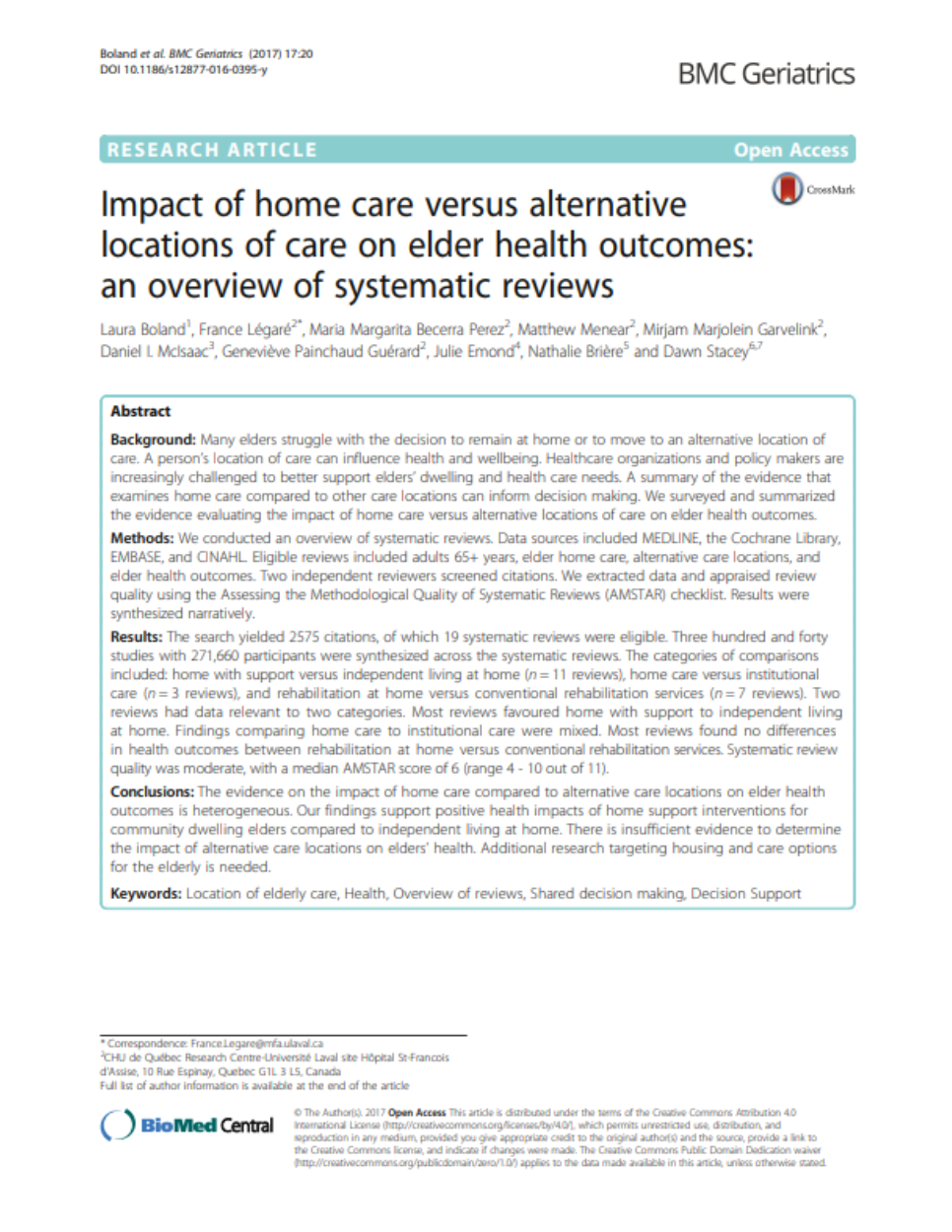Impact of home care versus alternative locations of care on elder health outcomes: an overview of systematic reviews
Results from this overview of systematic reviews, which evaluated the impact of home care compared to alternative long-term LOCs on elder health outcomes, suggests that home interventions and/or supports that promote elder health and independence might be effective in helping elders age at home.
Author: Laura Boland, France Légaré, Maria Margarita Becerra Perez, Matthew Menear, Mirjam Marjolein Garvelink, Daniel I. McIsaac, Geneviève Painchaud Guérard, Julie Emond, Nathalie Brière and Dawn Stacey
Publication Date: January 14, 2017
Description:
Background: Many elders struggle with the decision to remain at home or to move to an alternative location of care. A person’s location of care can influence health and wellbeing. Healthcare organizations and policy makers are increasingly challenged to better support elders’ dwelling and health care needs. A summary of the evidence that examines home care compared to other care locations can inform decision making. We surveyed and summarized the evidence evaluating the impact of home care versus alternative locations of care on elder health outcomes.
Methods: We conducted an overview of systematic reviews. Data sources included MEDLINE, the Cochrane Library, EMBASE, and CINAHL. Eligible reviews included adults 65+ years, elder home care, alternative care locations, and elder health outcomes. Two independent reviewers screened citations. We extracted data and appraised review quality using the Assessing the Methodological Quality of Systematic Reviews (AMSTAR) checklist. Results were synthesized narratively.
Results: The search yielded 2575 citations, of which 19 systematic reviews were eligible. Three hundred and forty studies with 271,660 participants were synthesized across the systematic reviews. The categories of comparisons included: home with support versus independent living at home (n = 11 reviews), home care versus institutional care (n = 3 reviews), and rehabilitation at home versus conventional rehabilitation services (n = 7 reviews). Two reviews had data relevant to two categories. Most reviews favoured home with support to independent living at home. Findings comparing home care to institutional care were mixed. Most reviews found no differences in health outcomes between rehabilitation at home versus conventional rehabilitation services. Systematic review quality was moderate, with a median AMSTAR score of 6 (range 4 - 10 out of 11).
Conclusions: The evidence on the impact of home care compared to alternative care locations on elder health outcomes is heterogeneous. Our findings support positive health impacts of home support interventions for community dwelling elders compared to independent living at home. There is insufficient evidence to determine the impact of alternative care locations on elders’ health. Additional research targeting housing and care options for the elderly is needed.
Access: Free
Keywords: Location of elderly care, Health, Overview of reviews, Shared decision making, Decision Support



